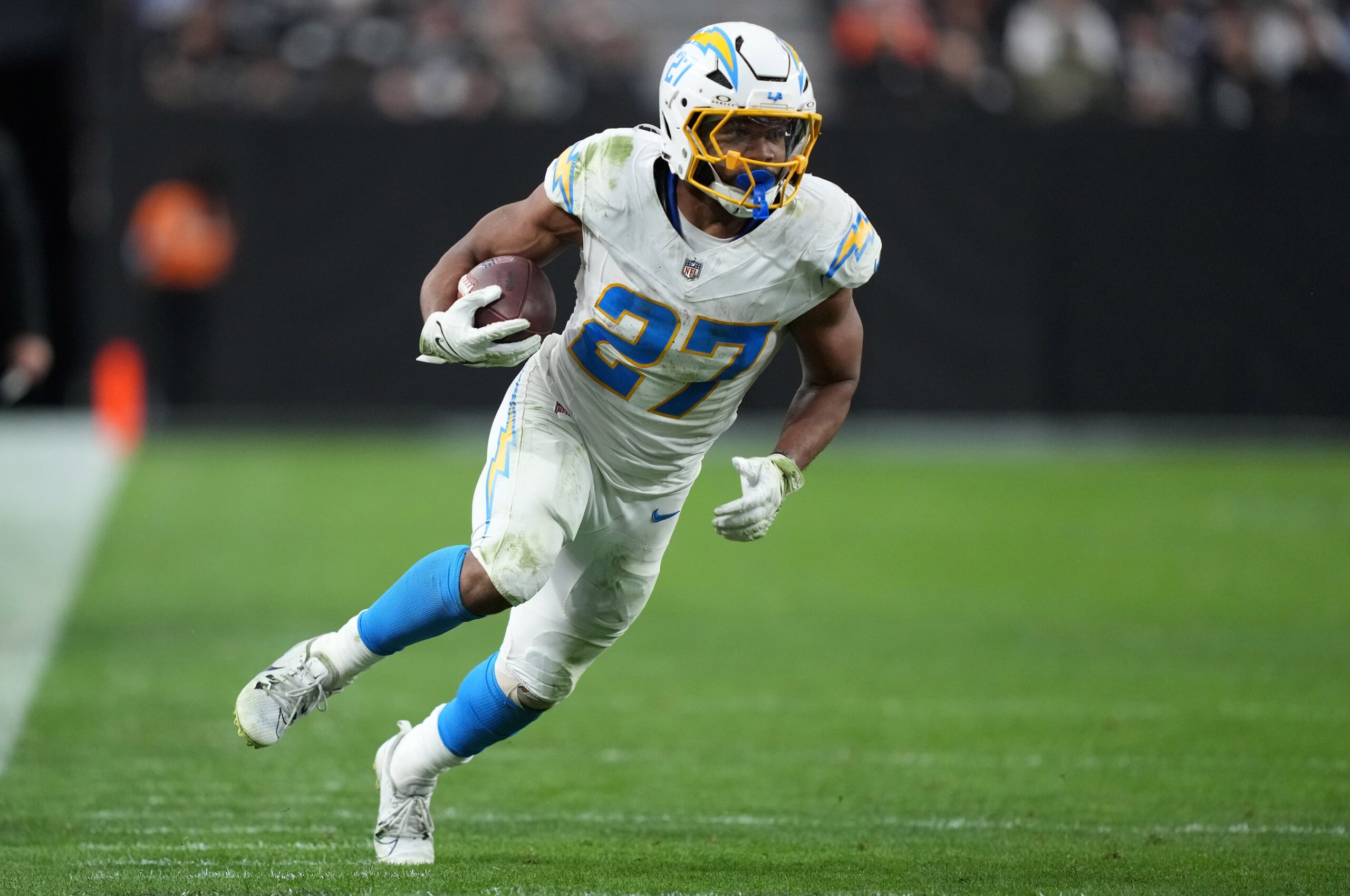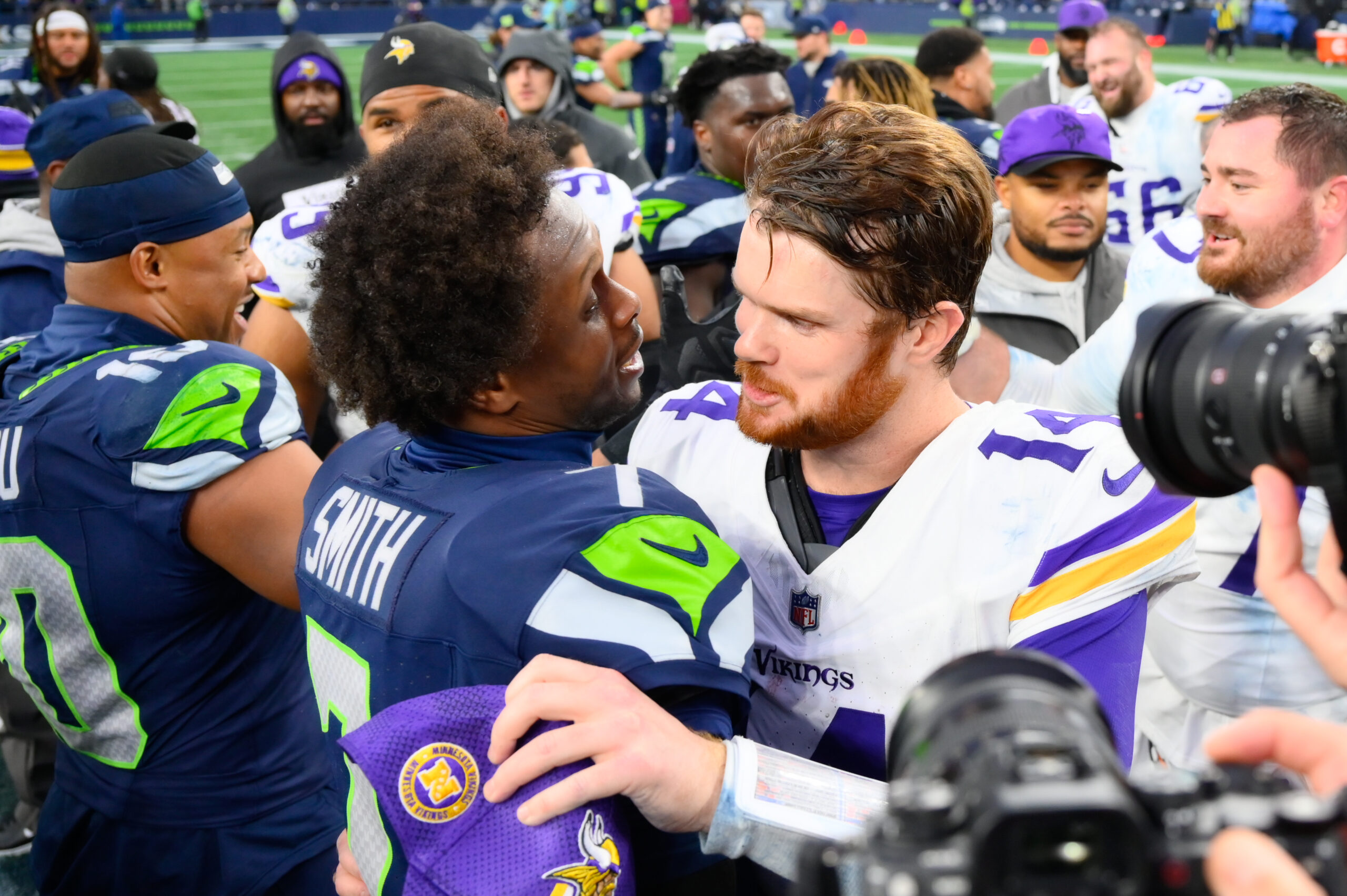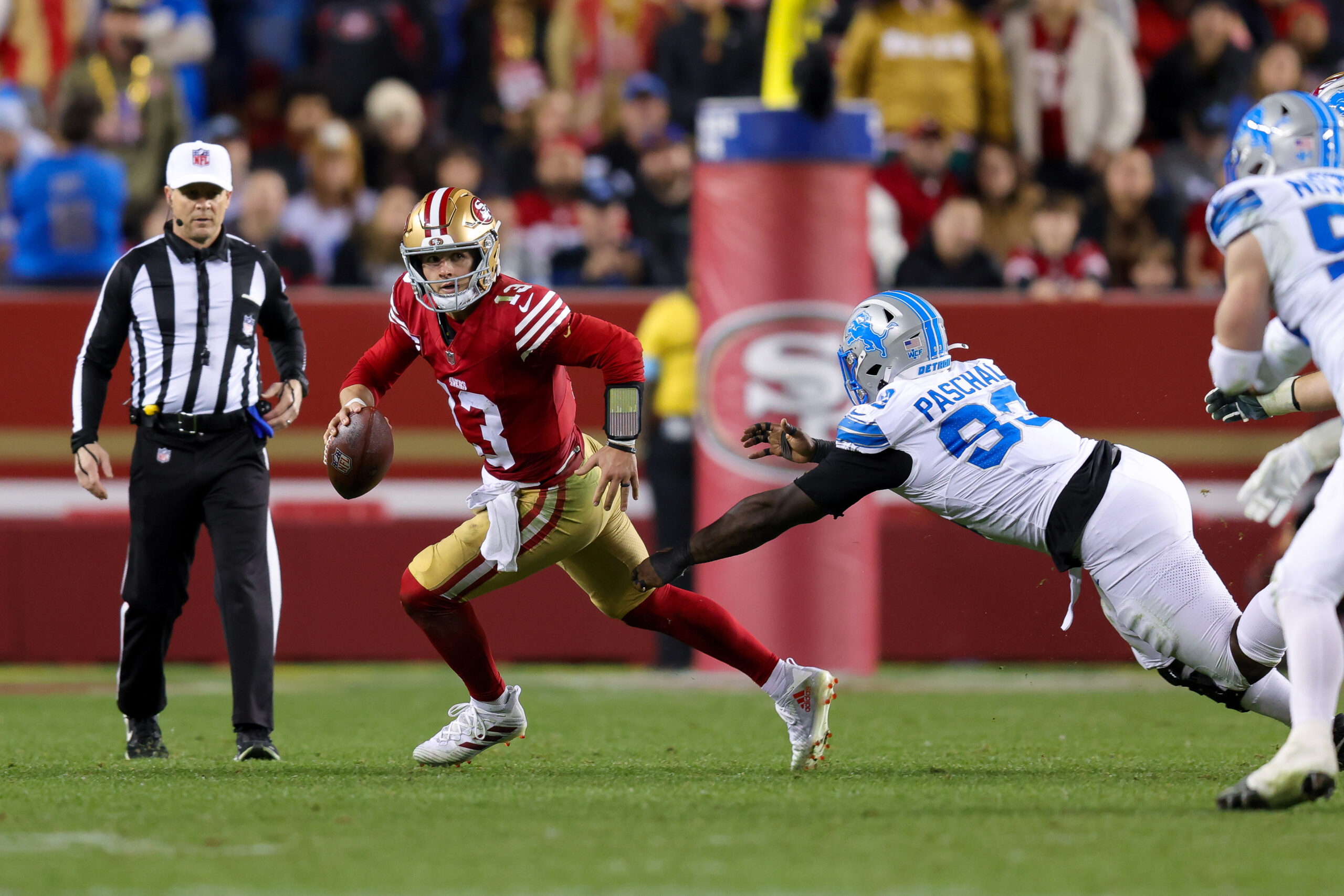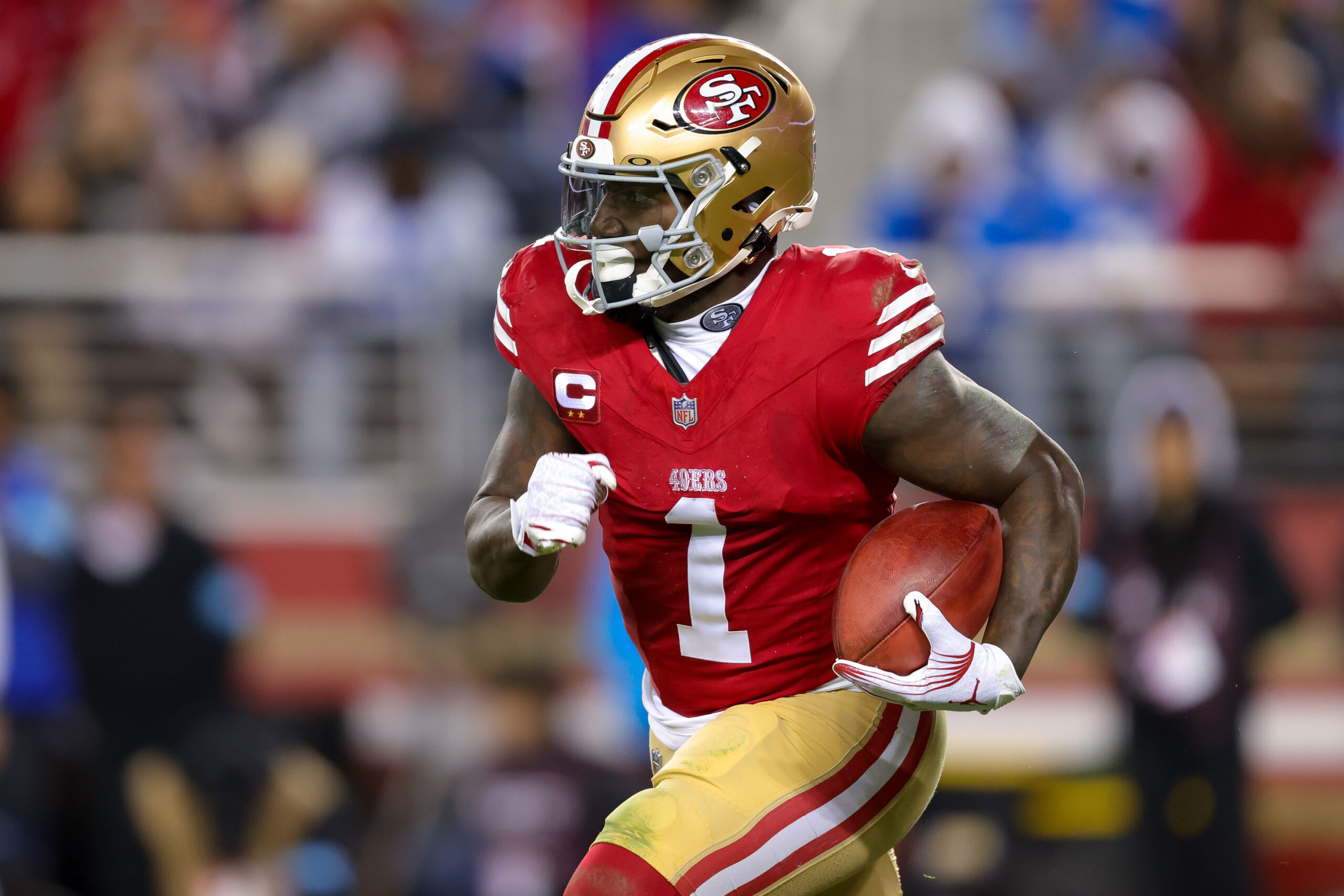NFL Analysis
2/21/25
4 min read
Tight Ends vs. Wide Receivers: A $10 Million Pay Gap That Makes No Sense
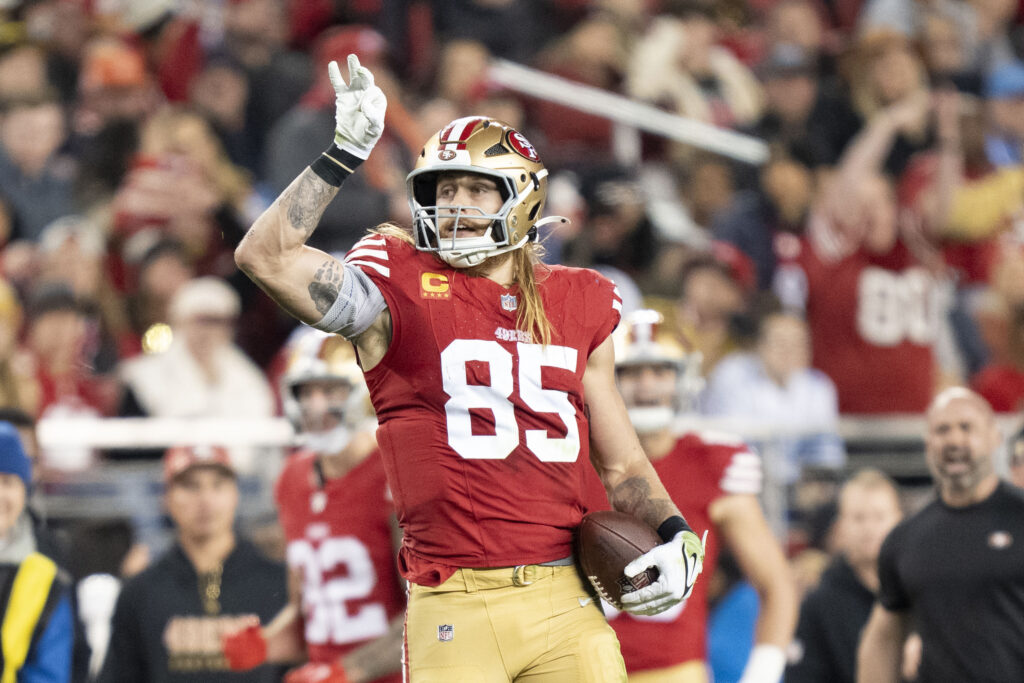
Are tight ends becoming the NFL’s most underpaid players? Are they already? Or are there just not many truly difference-making tight ends in the NFL?
I had these thoughts when the franchise tag window for 2025 opened this week, and I noticed just how low the number is for the position compared to wide receiver and offensive line, let alone every position on defense.
Without getting too deep into the weeds, the franchise tag is the average of the top five salaries at a player’s position, and the numbers at tight end compared to their brethren are jaw-dropping.
The projected franchise tag number for 2025 for tight ends is $14.241 million, a whopping $10 million lower than the guys on either side of them in the huddle at wide receiver ($25.693M) and offensive line ($25.156M).
In fact, the only other position group in the same galaxy, in terms of compensation, is running back ($13.629M). Although their plight in recent years and resurgence in 2024 led by Saquon Barkley, Derrick Henry, Josh Jacobs, etc. has been well documented, including yours truly.
While it will be fascinating to see how the running back market reacts to the big seasons by the aforementioned veterans, that topic has been discussed ad nauseam and will again be a focus this offseason.
That’s not the case with tight ends.
Their comparatively paltry compensation has gone under the radar for whatever reason, and I’m not sure why. Think about the best teams in the NFL in recent years. Who is the first skill position player you think of other than quarterback?
The 49ers have been on an outstanding run since 2019, and George Kittle has been the most consistent presence among their myriad of skill players. In what world is San Francisco WR Brandon Aiyuk ($30M per season) worth twice as much as Kittle ($15M annually)?
Not only has Kittle been tremendous as a receiver, but he’s also been an elite blocker to the point where he is a veritable weapon in the run game in a way Aiyuk could never be.
While the Chiefs have cycled through seemingly dozens of receivers and won multiple Super Bowls without Tyreek Hill, Travis Kelce is the one constant. He’s arguably the best tight end ever and has the regular season and postseason statistics to make that claim.
Yet, even with a revised contract in 2024, he still, as the highest-paid tight end in the league, makes over $10 million less than receivers like DJ Moore and Jaylen Waddle. Heck, receivers like Brandin Cooks, Christian Kirk, and Jerry Jeudy make more annually than Kelce’s $17 million average.
Kelce is clearly no longer in his prime, but to think he’s been the most dominant force for the best team in football in the last decade while playing for less money than guys who aren’t even close to being in the top 10 at their position is wild. And Kelce knows it.
“We all kind of feel like we’re the most underpaid position in the league,” Kelce said on an episode of his New Heights podcast with brother Jason.
It’s hard to argue with him.
It must be incredibly frustrating for a franchise great like Mark Andrews ($14M per year) to see Colts WR Michael Pittman make almost $10 million more per season than he does.
This is not a knock on receivers or any other position, for that matter, but something is off with how the league values tight ends, and it has been for some time.
Do you think the Patriots during the second half of the Tom Brady era would have had the same success without Rob Gronkowski? Of course not. And yet Gronk, like the rest of his position group, never got close to high-end receiver money.
What’s crazy is that a lot of times you could argue that tight ends are more valuable than receivers because of their blocking in the run game and because of the outsized impact they have on third down and in the red zone.
Every coach will mention those two things, along with turnovers being the key to the outcome of any game. Still, the market still doesn’t seem to agree. Is it due for a correction like the running back market?
2024 was not a huge year for tight ends, so perhaps this isn’t the best time to bring it up, but their franchise tag number still sticks out like a sore thumb.
It will take some elite young tight ends, like Sam LaPorta or perhaps Brock Bowers, to push the envelope when their time comes in negotiations. Hopefully, they can get some of the best and most important players in the league closer to the value they deserve.


